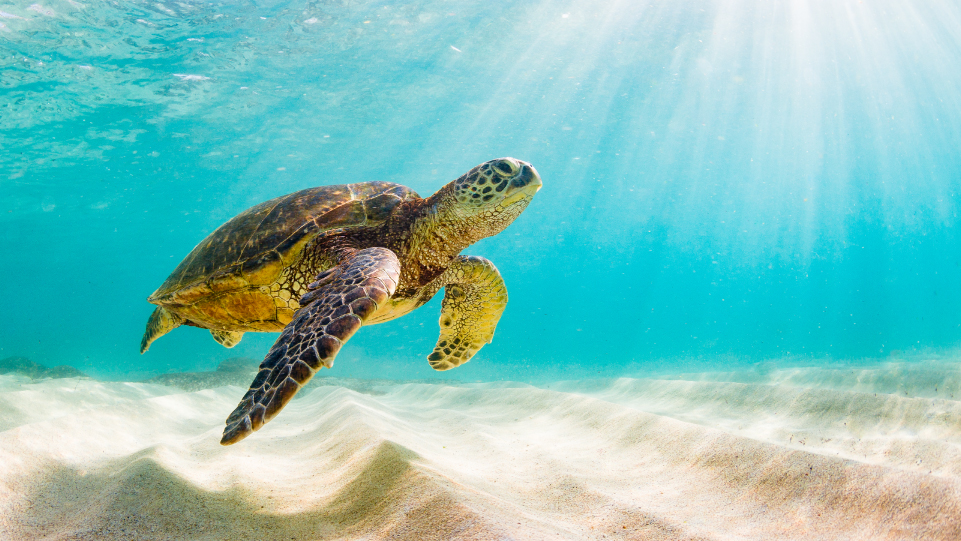Happy St. Patrick’s Day!
Here’s How We’re Going Green Today for Tomorrow™
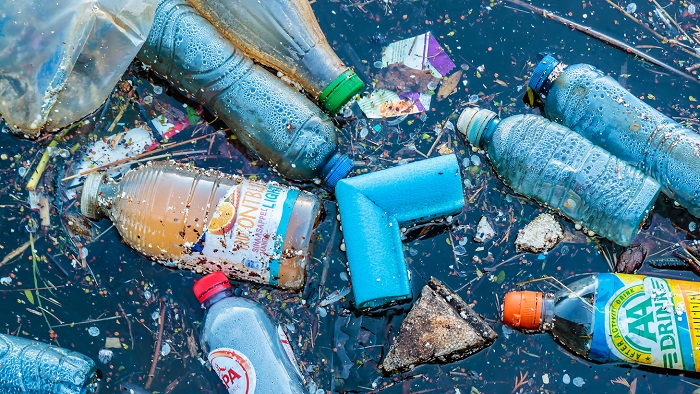
Plastic pollution is one of the worst environmental threats to our planet’s oceans, and we made more plastic in the first decade of this century than all the plastic in history up to the year 2000. Billions of pounds of plastic end up in the ocean each year, and at this rate, there may be more plastic in the ocean than fish by the year 2050.
Emerging research suggests that not one square mile of surface ocean on Earth is free of plastic pollution. Most of this plastic comes from land, where it is blown by the wind or carried by rivers into the ocean (2).
What are the effects of all this plastic? We’ve all seen the pictures of turtles, birds, seals, and other animals tangled up in plastic rings or injured from ingesting plastic bags. Plastic pollution can cause severe injury and death to countless ocean species and often makes its way up the food chain. Fish in the North Pacific ingest an estimated 12,000 to 24,000 tons of plastic annually (4). One study found that a quarter of fish at markets in California contained plastic microfibers in their stomachs. As plastic floats through the sea and breaks down, it absorbs and releases chemicals like PCBs, DDT, PAHs, and BPA (2).
Taking Action
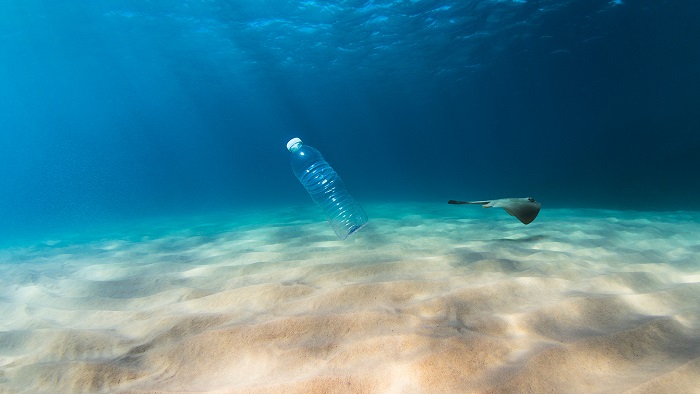
These facts paint a pretty tragic image of the state of our world’s oceans, but we can make simple, easy changes to reduce the amount of plastic we throw away.
1. Limit Your Use of Plastic Straws
Next time you’re at a restaurant, consider asking for your drink to be served without a straw or opt to bring your own metal or paper straw that can break down.
Estimates suggest over 500 million plastic straws are used in America every day, with many ending up in the ocean and harming the marine life. Plastic straws are among the top 10 items found during beach cleanups because they are too small and lightweight to make it through the mechanical recycling sorter, drop through the screens, and mix up with waste destined for the landfill (1).
2. Use Reusable Products Whenever Possible
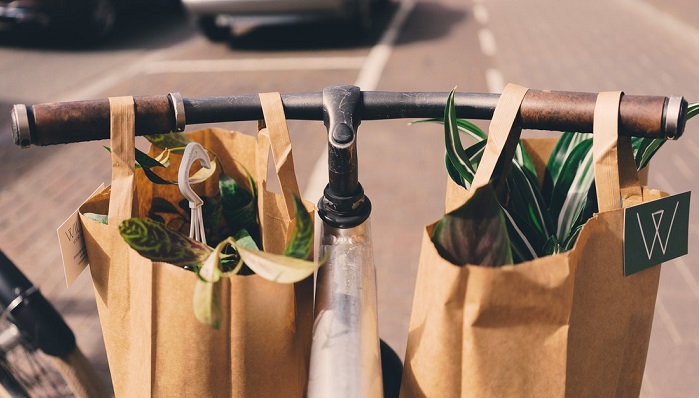
Hopefully you’re already doing some things, like recycling and using reusable water bottles and coffee cups. The grocery store is another place you can go plastic-free. On your next trip to the store, avoid using the provided plastic bags and invest in reusable or mesh ones instead.
3. Take a Tour of Your Local Recycling Plant
Also known as a materials recovery facility (MRF), a recycling plant will teach you what is and isn’t accepted in your local curbside recycling bin, making you more aware of what happens to our trash once it leaves our homes. For example, most soft film plastic (think grocery bags and trash bags) are not recyclable in the typical curbside recycling bin, but most grocery stores have collection bins where you can recycle your plastic bags and any other type of film plastic. Learn what your local policies are so you can recycle more effectively.
4. Make Changes at Home
Instead of using disposable plastic bags for food storage, use reusable metal or glass containers.
Did you know an estimated 50 million pounds of plastic toothbrushes are thrown out every year? Consider swapping out your plastic toothbrush for a biodegradable bamboo one (3).
There are many more ways you can cut down on plastic use and live a more sustainable life. Get creative!
Doing Our Part
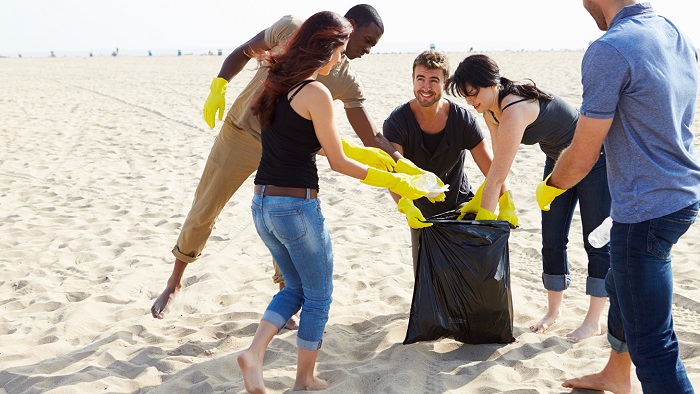
At Isagenix, we’re growing more aware of the immense threat plastic pollution poses to our health, our ecosystems, and marine life. That’s why we’re working toward more sustainable forms of packaging that still uphold the integrity of our products.
The first phase of this commitment is switching our recyclable shake canisters to more sustainable materials. As of April 2018, all IsaLean® Shake canisters have been made of 100 percent post-consumer recycled HDPE plastic so that we don’t have to make new plastic for each canister.
In 2018, this helped save 3,000,000 milk jugs’ worth of virgin plastic, 207,000 gallons of oil, and 31,000 gallons of gas and CO2 emissions. It’s also saved enough energy to power 370 homes for an entire year. (5)
At Isagenix World Headquarters, we’ve eliminated plastic water bottles and given each employee a reusable water bottle with a reusable straw, and we intend to make other changes in the future to lessen the impact of plastic pollution as we continue to grow.
What are you doing to lessen your impact? Share with us on Facebook!
Sources:
